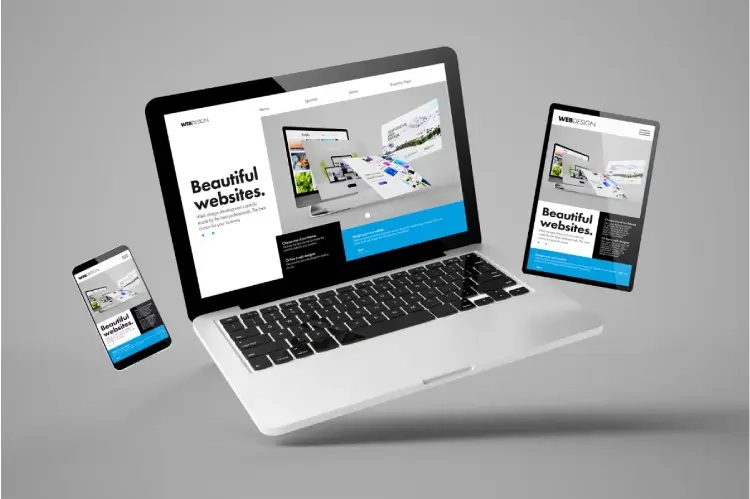
Boost Your Website’s Rankings Master On-Page SEO Without Relying on Backlinks

Post by admin | September 13, 2024
In today’s digital age, every business aims to secure top positions on search engines like Google. But, did you know that ranking high doesn’t always require building a massive backlink profile? While backlinks remain important, focusing on on-page SEO can be a game-changer for your website’s rankings. Mastering on-page SEO allows you to optimize your site for search engines and users alike—without relying heavily on external sources. Let’s explore how you can boost your site’s performance with on-page SEO, without obsessing over backlinks.
Why On-Page SEO is So Important
When people hear “SEO,” their minds often jump straight to backlinks. But on-page SEO is just as critical in ensuring your website performs well. Search engines like Google have become smarter at understanding the context and quality of the content on your site. This means optimizing what’s already on your site is crucial for getting noticed.
Interestingly, a well-optimized site can rank higher than one with more backlinks but poor on-page SEO. In fact, according to a study by Backlinko, content relevance and user experience play a significant role in Google’s ranking algorithm. So, let’s dive into the nuts and bolts of how on-page SEO can make all the difference for your website.
Start with Comprehensive Keyword Research
To master on-page SEO, you need to start with keyword research. Keywords are the foundation of any SEO strategy, and they tell search engines what your content is about. Instead of targeting just high-volume keywords, consider using a mix of long-tail keywords and local terms that match user intent. For instance, a digital marketing company could focus on phrases like affordable SEO services for small businesses or best local SEO marketing services in your city.
Once you’ve selected the right keywords, ensure that they are naturally integrated into your titles, meta descriptions, headers, and content. But remember, keyword stuffing is a big no-no. Search engines can penalize you for trying to manipulate the rankings by overusing keywords.
Optimize Your Titles and Meta Descriptions
The first thing users notice about your website is the title and meta description that appear on search engine results pages (SERPs). These are crucial elements of on-page SEO. Your title should not only include your primary keyword but also be enticing enough to encourage users to click. An ideal title for a custom web design agency, for example, could be: “Affordable Custom Web Design and SEO Services for Websites That Drive Results.”
Meta descriptions, while not a direct ranking factor, help with click-through rates. A compelling meta description gives users a snapshot of what they’ll find on the page. Be sure to include keywords like SEO services company or PPC ad agency to make your page more attractive.
Write Engaging, High-Quality Content
Content is king in the world of on-page SEO. But not just any content—high-quality, relevant content is what matters. Search engines now prioritize user intent over keyword matching. This means you need to write for humans first, and then for search engines. Content that answers questions, solves problems, and offers value will naturally rank higher.
When creating content, think about what your audience is searching for. A company offering google ads services could write a blog about “How to Optimize Google Ads for Local Businesses.” This not only establishes you as an authority but also helps you rank for a variety of search queries.
It’s also important to keep your content fresh and updated. Search engines favor sites that continually provide up-to-date information. Regularly revisiting old posts and updating them with new data or insights can help maintain or improve rankings.
Use Header Tags Effectively
Headers, such as H1, H2, and H3, play an essential role in on-page SEO. They help organize your content and make it easier for both users and search engines to understand. Your H1 tag should be your primary headline and include your target keyword. Subsequent headers (H2, H3, etc.) break your content into digestible sections, improving user experience.
For example, if you’re writing about SEO services for websites, your H1 could be “Best SEO Services for Website Optimization,” while H2 could be “Why On-Page SEO Matters” or “How to Optimize Your Site for SEO.”
Mobile Optimization is Non-Negotiable
We’re living in a mobile-first world, and Google knows this. In fact, mobile-friendliness is one of the key ranking factors in Google’s algorithm. If your website isn’t optimized for mobile users, you’re likely losing traffic and, worse, rankings.
Make sure your website is responsive and offers a seamless experience across devices. A custom web design agency that excels in mobile optimization will always have an edge over competitors who haven’t made the switch.
Speed Up Your Website
Page load speed is a direct ranking factor, and a slow website can hurt both your user experience and SEO performance. A study by Google showed that 53% of mobile users abandon sites that take longer than three seconds to load. That’s a lot of potential customers you could be losing.
To improve page speed, compress your images, minimize HTTP requests, and enable browser caching. It’s also a good idea to work with a digital marketing company or developer who can perform a comprehensive audit of your site’s speed and suggest improvements.
Internal Linking for Better Navigation and SEO
Internal linking is another crucial aspect of on-page SEO that is often overlooked. When done correctly, internal linking helps search engines understand the structure of your website and which pages are most important.
For example, if you have a blog post on local SEO marketing services, you can link it to related pages or services like PPC ad agency or google ads services. This keeps users on your site longer, improves page authority, and provides additional context to search engines.
Don’t Forget Image Optimization
Images are a key part of any website, but they also need to be optimized for SEO. Use descriptive file names and alt text that include relevant keywords. This helps search engines index your images properly and can lead to higher rankings in image search results.
For example, if your site is about SEO services for websites, your image alt text could be “Professional SEO services company helping small businesses rank higher on Google.”
Leverage Structured Data for Better Visibility
Structured data, or schema markup, is another powerful on-page SEO tool that can help search engines understand your content better. By adding structured data to your website, you can increase the chances of getting rich snippets or appearing in the knowledge graph.
For a PPC ad agency, this could mean having your services appear in a featured snippet when users search for “best PPC agencies near me.” Structured data also enhances your site’s visibility, making it easier for users to find what they’re looking for.
On-Page SEO is Your Secret Weapon
Mastering on-page SEO is one of the most effective ways to boost your website’s rankings without relying heavily on backlinks. By focusing on keyword optimization, high-quality content, mobile-friendliness, and technical improvements, you can give your site the competitive edge it needs. Whether you’re working with a digital marketing company or handling your SEO in-house, remember that on-page SEO is the foundation of any successful strategy.
While backlinks can certainly help, they’re not the be-all and end-all of SEO. With the right on-page tactics, you can improve your website’s visibility, attract more organic traffic, and ultimately, grow your business.
If you’re ready to take your site’s performance to the next level, consider partnering with a professional SEO services company or custom web design agency to ensure your on-page SEO is up to par. Don’t forget that local SEO marketing services, google ads services, and working with a reputable PPC ad agency can further boost your rankings and drive traffic to your website.



